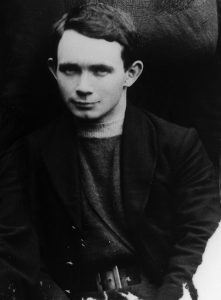Con Colbert (1888 – 1916) - Irish Nationalist and Easter Rising Hero

Con Colbert was a key figure in the Easter Rising of 1916, but his life before the rebellion was just as remarkable. He was born in 1888 in Limerick, Ireland, and was the youngest of 13 children. Colbert’s parents were both deeply committed to Irish nationalism, and they instilled in him a strong sense of pride in his Irish heritage from an early age.
As a young man, Colbert became involved in the Gaelic League, an organization that promoted Irish language and culture. He quickly became a passionate advocate for the Irish language, and he believed that the preservation of Irish culture was crucial for achieving Irish independence.
In addition to his work with the Gaelic League, Colbert was also an active member of the Irish Republican Brotherhood (IRB), a secret organization dedicated to achieving Irish independence from Britain. He was deeply committed to the cause of Irish nationalism and believed that the Irish people deserved to be free from British rule.
Colbert was a skilled tradesman and worked as a carpenter before joining the military. He was also an accomplished athlete and was known for his skill in hurling, a traditional Irish sport.
In 1914, Colbert joined the Irish Volunteers. He quickly rose through the ranks, and by 1916, he was a commanding officer in the group. Colbert played a key role in the planning of the Easter Rising, and he was in charge of a group of rebels who took over the Marrowbone Lane Distillery in Dublin.
Despite being outnumbered and outgunned, Colbert’s forces held out for three days before being forced to surrender. Colbert was arrested and sentenced to death by firing squad. He was executed on May 8, 1916.
Today, Colbert is remembered as a hero of the Irish struggle for independence. He was a passionate advocate for Irish language and culture and a committed nationalist who believed in the importance of Irish independence. His leadership and bravery during the Easter Rising helped to inspire future generations of Irish republicans.